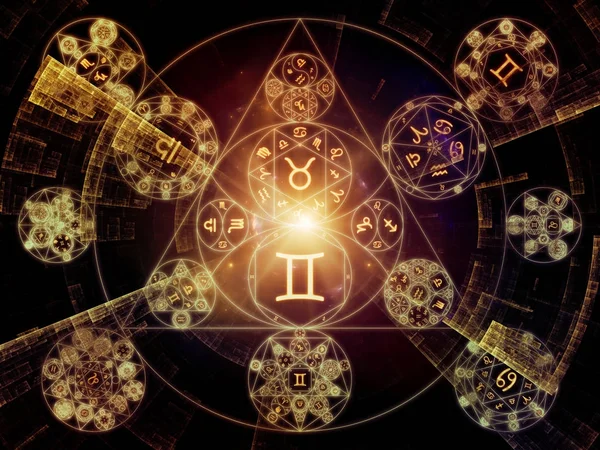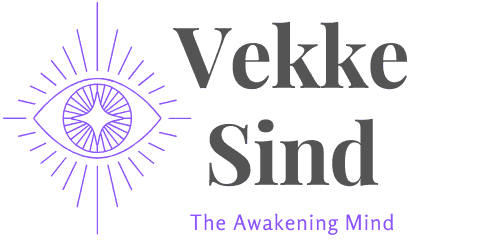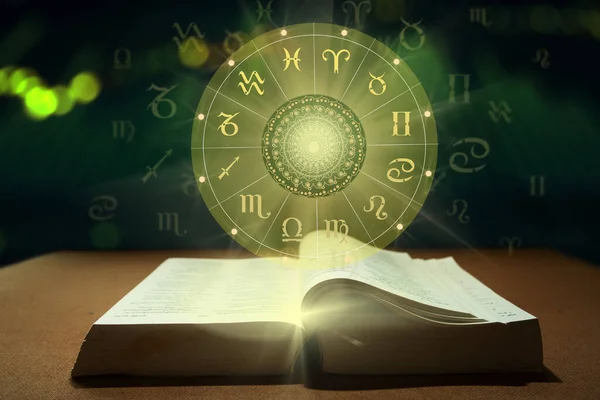Combining zodiac elements can create a mystical and powerful force that can have a significant impact on an individual’s life.
Each zodiac sign is associated with one of four elements: fire, earth, air, and water. When these elements merge, they can create a unique energy that can affect personality traits, relationships, and life paths.
For example, when fire and earth elements combine, they create a powerful force that can be both productive and destructive. This combination can lead to intense passion and creativity, but it can also lead to stubbornness and conflict.
On the other hand, when air and water elements merge, they create a more balanced and harmonious energy that can enhance communication and emotional connections.
Understanding the impact of zodiac element mergers can provide insight into oneself and relationships with others. By recognizing the unique energy created by these mergers, individuals can better navigate their personal and professional lives.
In this article, we will explore the mystical world of zodiac element mergers and the impact they can have on individuals and relationships.
Table of Contents
Understanding Zodiac Elements

In astrology, the four elements are the basic building blocks of the zodiac. They are fire, earth, air, and water. Each element is associated with three zodiac signs, and they play a significant role in understanding a person’s characteristics, personality, and compatibility with others.
Fire Signs
The fire signs are Aries, Leo, and Sagittarius. These signs are passionate, energetic, and confident. They are known for their strong will, leadership skills, and adventurous spirit. Fire signs are also associated with creativity, inspiration, and intuition.
Earth Signs
The earth signs are Taurus, Virgo, and Capricorn. These signs are practical, grounded, and reliable. They are known for their hard work, determination, and attention to detail. Earth signs are also associated with stability, security, and material possessions.
Air Signs
The air signs are Gemini, Libra, and Aquarius. These signs are intellectual, communicative, and social. They are known for their curiosity, adaptability, and ability to see things from different perspectives. Air signs are also associated with ideas, concepts, and mental agility.
Water Signs
The water signs are Cancer, Scorpio, and Pisces. These signs are emotional, intuitive, and empathetic. They are known for their sensitivity, compassion, and creativity. Water signs are also associated with spirituality, dreams, and the subconscious mind.
Combining Zodiac Elements
When two zodiac signs with different elements come together, they can create a mystical merger. For example, a fire sign and an earth sign can create a powerful combination of passion and practicality. A water sign and an air sign can create a balance of emotions and intellect.
It is essential to understand the elements of the zodiac signs to interpret the compatibility between two people.
The combination of elements can affect the way two people interact and relate to each other. By understanding the elements, one can gain insight into their strengths, weaknesses, and potential challenges in a relationship.
The Astrological Chart and Zodiac Signs
The astrological chart, also known as the birth chart or natal chart, is a map of the sky at the moment of an individual’s birth. It is a tool used in astrology to gain insight into a person’s personality, strengths, weaknesses, and life path. The chart is divided into 12 sections, each representing a zodiac sign.
The zodiac signs are Aries, Taurus, Gemini, Cancer, Leo, Virgo, Libra, Scorpio, Sagittarius, Capricorn, Aquarius, and Pisces. Each sign is associated with a specific element: fire, earth, air, or water. The elements represent different qualities and characteristics that can influence a person’s personality and behavior.
For example, fire signs (Aries, Leo, Sagittarius) are known for their passion, creativity, and energy.
Earth signs (Taurus, Virgo, Capricorn) are practical, grounded, and reliable. Air signs (Gemini, Libra, Aquarius) are intellectual, communicative, and social. Water signs (Cancer, Scorpio, Pisces) are emotional, intuitive, and sensitive.
The combination of a person’s zodiac sign and element can provide deeper insight into their personality and behavior. For instance, an Aries with a fire element may be more impulsive and energetic, while a Taurus with an earth element may be more practical and grounded.
It is important to note that while zodiac signs and elements can provide insight, they do not determine a person’s entire personality or life path. Astrology is a complex and nuanced field, and it is important to approach it with an open mind and a willingness to learn.
Directional Elements and Their Significance

In astrology, the four elements – Earth, Air, Fire, and Water – are assigned to the four zodiac signs of each element. These elements are not only associated with the zodiac signs but also with the four cardinal directions – East, West, North, and South.
Each of these cardinal directions has a specific elemental association that is significant in ritual magic. The elemental-directional correspondences vary in different magical traditions, but some common associations are as follows:
- East is associated with Air, which represents communication, new beginnings, and intellectual pursuits. It is the direction of the rising sun and symbolizes the dawn of a new day.
- West is associated with Water, which represents emotions, intuition, and creativity. It is the direction of the setting sun and symbolizes the end of the day.
- North is associated with Earth, which represents stability, grounding, and material possessions. It is the direction of the North Star and symbolizes the steady and unchanging nature of the earth.
- Center is associated with Spirit, which represents the divine, the infinite, and the unifying force that connects all things.
In ritual magic, directional elements are used to invoke the powers of the elements and call upon their energies to enhance the effectiveness of the ritual. The elemental-directional correspondences are also used in feng shui, a Chinese practice that aims to harmonize people with their environment.
The center directional element is particularly significant in ritual magic, as it represents the unifying force that connects all the elements and energies. It is often used as a focal point in ritual circles and is associated with the concept of balance and harmony.
Overall, the directional elements and their significance play an important role in many magical traditions and practices. By understanding the elemental-directional correspondences, practitioners can harness the powers of the elements and direct them towards their desired goals.
Mystical Mergers: Elemental Combinations
When it comes to astrology, the combination of zodiac elements can have a significant impact on an individual’s personality and compatibility with others. The four elements – fire, earth, air, and water – each have unique characteristics and qualities that can be combined to create mystical mergers.
Fire and Earth
Fire and earth are two elements that can create a powerful combination. Fire is associated with passion, energy, and creativity, while Earth is grounded, stable, and practical.
When these two elements come together, they can create a balance between passion and practicality. Those with this combination may have a fiery drive to achieve their goals but also possess the practicality to make them a reality.
Air and Water
Air and water are two elements that can create a harmonious combination. Air is associated with intellect, communication, and socialization, while water is emotional, intuitive, and empathetic. When these two elements come together, they can create a balance between logic and emotion.
Those with this combination may possess an intellectual curiosity and ability to communicate effectively but also have a deep understanding of their own and others’ emotions.
Fire and Air
Fire and air are two elements that can create an exciting combination. Fire is associated with passion and energy, while air is associated with intellect and communication. When these two elements come together, they can create a balance between passion and reason.
Those with this combination may possess a fiery drive to achieve their goals but also have the ability to communicate their ideas effectively.
Earth and Water
Earth and water are two elements that can create a calming combination. Earth is associated with stability and practicality, while water is emotional and intuitive. When these two elements come together, they can create a balance between practicality and emotion.
Those with this combination may possess a grounded sense of stability but also have a deep emotional understanding of themselves and others.
Overall, the combination of zodiac elements can have a significant impact on an individual’s personality and compatibility with others. While these combinations can provide insight into an individual’s strengths and weaknesses, it is important to remember that astrology is not a definitive science and should be taken with a grain of salt.
Zodiac Elements and Planetary Influence

In astrology, the zodiac signs are divided into four elements: fire, earth, air, and water. Each element has its own unique qualities that influence the personality traits of the signs associated with it. Additionally, the planets in our solar system also have a significant influence on the zodiac signs.
Jupiter, the largest planet in our solar system, is associated with expansion, growth, and abundance. Its influence on the zodiac signs can enhance their natural qualities and bring about positive changes.
For example, a fire sign like Aries may become more confident and assertive under Jupiter’s influence, while an earth sign like Taurus may become more grounded and practical.
Venus, the planet of love and beauty, has a strong influence on the zodiac signs associated with the element of air. This includes Gemini, Libra, and Aquarius. Venus can enhance their natural charm and social skills, making them more attractive to others.
However, it can also make them more prone to indecision and superficiality.
Mercury, the planet of communication and intellect, has a strong influence on the zodiac signs associated with the element of earth.
This includes Taurus, Virgo, and Capricorn. Mercury can enhance their natural analytical abilities and practicality, making them more efficient and effective in their work. However, it can also make them more prone to overthinking and worrying.
Overall, understanding the influence of the planets on the zodiac signs can provide valuable insights into their personalities and behaviors. By combining this knowledge with an understanding of the zodiac elements, it is possible to gain a deeper understanding of the mystical mergers that occur when these elements combine.
Astrological Elements in History
Astrology has been used for centuries to predict earthly and human events. It is based on the placement of the sun, moon, and planets within the astrological constellations. In ancient astrology, the signs were associated with four classical elements: fire, earth, air, and water.
The seasonal elements of ancient astrology were also given the qualities of an element, which means the signs associated with that season were allocated to that element.
The history of astrology dates back to ancient times, with the Babylonians being the first to develop a system of astrology.
The Greeks also contributed to the development of astrology, with Claudius Ptolemy’s “Tetrabiblos” being one of the most influential works on astrology in the Western world. Ptolemy’s work was based on the Babylonian system and was widely used in the Roman Empire.
The classical elements of astrology have been used in various ways throughout history. For example, the Roman Empire used the elements to explain the nature of the gods and the world. The elements were also used in medicine, with each element associated with a different bodily fluid.
In astrology, the elements are used to describe the basic nature of the signs. Fire signs (Aries, Leo, Sagittarius) are associated with action, passion, and creativity. Earth signs (Taurus, Virgo, Capricorn) are associated with stability, practicality, and materialism.
Air signs (Gemini, Libra, Aquarius) are associated with communication, intellect, and social interaction. Water signs (Cancer, Scorpio, Pisces) are associated with emotion, intuition, and sensitivity.
In conclusion, the use of astrological elements has a long and rich history in various cultures throughout the world.
The elements have been used to explain the nature of the gods, the world, and the human body. In astrology, the elements are used to describe the basic nature of the signs and to predict earthly and human events.
Science Behind Astrology

Astrology is a complex and ancient system of belief that has been a topic of debate for centuries. While it is not considered a science in the traditional sense, there are some scientific principles that underpin the practice.
One of the fundamental principles of astrology is that the position of the stars and planets at the time of a person’s birth can have an impact on their personality and life path.
This idea is based on the scientific fact that the gravitational pull of celestial bodies can affect the Earth’s rotation and orbit, as well as the tides and weather patterns.
In recent years, advances in technology have allowed scientists to study the universe in more detail than ever before.
For example, the Laser Interferometer Gravitational-Wave Observatory (LIGO) is a collaboration between MIT, Caltech, and other institutions that use advanced technology to detect gravitational waves.
These waves are created when massive objects like black holes or neutron stars collide, and they can provide valuable insights into the structure of the universe.
In fact, LIGO has already detected several gravitational waves from binary neutron star mergers, which have helped scientists better understand the physics of these events.
While astrology is not based on the same scientific principles as gravitational wave detection, there is some overlap between the two fields. Both rely on patterns and structures in the universe to make predictions about the future, and both seek to understand the underlying forces that shape our world.
Despite this overlap, it is important to note that astrology is not considered a valid scientific practice by most mainstream scientists.
While there may be some scientific principles that underpin the practice, there is little evidence to support the idea that the position of the stars and planets can have a significant impact on our lives.
In conclusion, while there may be some scientific principles that underpin astrology, the practice is not considered a valid scientific field by most mainstream scientists.
While it can be an interesting and thought-provoking system of belief, it should be approached with a healthy dose of skepticism and critical thinking.
Conclusion
In conclusion, the combination of zodiac elements can have a significant impact on an individual’s personality and behavior. Each element brings its own unique traits and characteristics, which can either complement or clash with the other elements.
It is important to note that astrology should not be used as a definitive guide to one’s life or decision-making process. Rather, it can be used as a tool for self-reflection and personal growth.
By understanding the strengths and weaknesses associated with each zodiac element, individuals can gain insight into their own tendencies and work towards improving themselves.
Overall, the mystical mergers of zodiac elements offer a fascinating glimpse into the complexities of human nature. While there is still much to be explored and understood, astrology continues to be a source of intrigue and inspiration for many.



